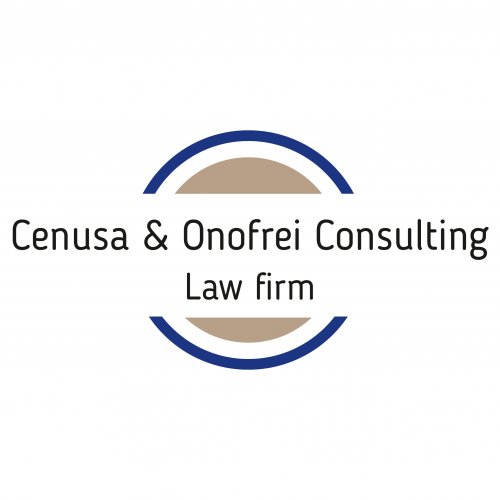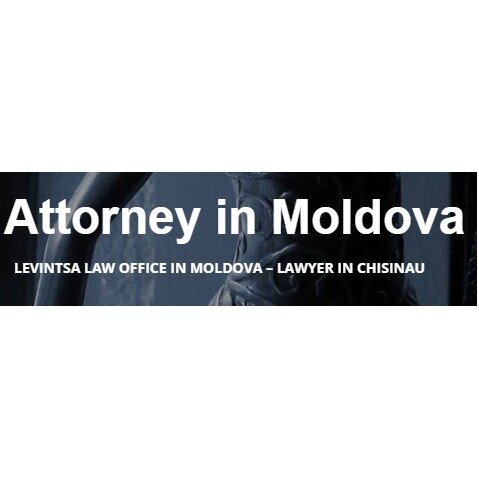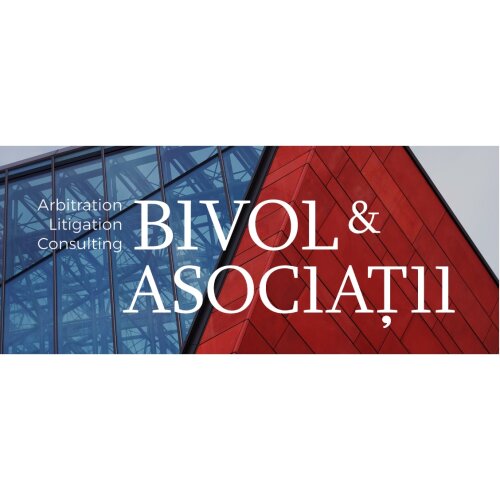Best Sanctions & Export Controls Lawyers in Republic of Moldova
Share your needs with us, get contacted by law firms.
Free. Takes 2 min.
Or refine your search by selecting a city:
List of the best lawyers in Republic of Moldova
About Sanctions & Export Controls Law in Republic of Moldova
Sanctions and export controls law in the Republic of Moldova is a framework of regulations and policies aimed at governing the transfer of goods, technologies, services, and sensitive information across borders. These laws ensure that Moldova complies with international obligations, including those imposed by the United Nations, the European Union, and its own national interests. The primary goal is to prevent the proliferation of weapons, protect national security, and restrict dealings with countries, entities, or individuals under international or national sanctions. Moldova regularly adapts its legal framework to remain consistent with global standards and address emerging risks.
Why You May Need a Lawyer
Engaging a legal professional with expertise in sanctions and export controls is important for individuals and businesses operating within or across Moldovan borders. Here are some common situations when legal assistance is invaluable:
- Exporting goods, technologies, or services that may be subject to national or international controls.
- Conducting business with entities or persons who may be on sanction lists.
- Dealing with customs authorities regarding detained goods or transactions under investigation.
- Facing potential penalties, investigations, or accusations of violating sanctions law.
- Seeking guidance on compliance programs for companies with cross-border operations.
- Responding to changes in international or national sanctions regimes that impact ongoing business agreements.
- Understanding due diligence obligations for financial institutions, logistics providers, and importers or exporters.
Local Laws Overview
The legal landscape in Moldova relating to sanctions and export controls involves several key pieces of legislation and authorities:
- Moldova’s Law on the Implementation of International Restrictive Measures sets out the framework for imposing and enforcing sanctions that originate from United Nations Security Council resolutions and decisions of the European Union, as well as Moldova's own national interests.
- The Customs Code and other related regulations establish specific controls and procedures for exporting or importing goods and technologies, particularly dual-use items.
- National authorities, including the Ministry of Economy and Infrastructure and the Customs Service, are empowered to implement and monitor sanctions and export control regimes.
- Financial institutions must adhere to laws on anti-money laundering and combating the financing of terrorism, which tie in closely with sanction requirements and asset freezes.
- Moldovan law provides for both administrative and criminal liability for breaches of sanctions and export controls regulations, including steep fines and the possibility of confiscation of goods and assets.
Staying compliant requires constant monitoring of updates from both domestic authorities and international sources, as changes can occur rapidly with implications for various sectors.
Frequently Asked Questions
What are sanctions in the context of the Republic of Moldova?
Sanctions are restrictive measures imposed by Moldova in alignment with its national policy or international commitments, such as those of the UN or EU. These can include asset freezes, travel bans, and restrictions on exporting certain goods or services to specific jurisdictions or entities.
Who administers and enforces sanctions in Moldova?
Implementation and enforcement are managed primarily by the Ministry of Foreign Affairs and European Integration, the Ministry of Economy and Infrastructure, and the Customs Service. Financial regulators and law enforcement agencies also play key roles.
What types of goods are subject to export controls in Moldova?
Export controls generally apply to goods with potential dual-use (civilian and military applications), strategic goods, arms, ammunition, certain chemicals, and technologies as defined by national and international control lists.
Can I check if a business partner is under sanctions?
Yes, Moldova publishes lists of sanctioned individuals and entities, and also relies on international lists, such as those from the UN and EU. Checking these lists and performing due diligence is a legal obligation for many types of transactions.
What should I do if my goods are detained by Moldovan customs?
Seek legal counsel immediately. You may need to provide documentation proving compliance with export control laws. Legal assistance can help prepare your case and liaise with authorities for swift resolution.
What penalties exist for violating sanctions or export controls?
Penalties include administrative fines, confiscation of goods, suspension or revocation of business licenses, and in some cases, criminal prosecution resulting in imprisonment.
Do Moldovan export controls affect intangible transfers, such as technology sharing?
Yes, the controls also apply to intangible transfers-including electronic transmission of controlled technology or technical data-especially when destined for restricted countries or end-users.
Is there a licensing regime for exporting controlled items?
Yes, certain goods and technologies require prior authorization or licenses from competent authorities before export. The application process involves strict documentation and screening procedures.
What impact do international sanctions have on Moldovan businesses?
International sanctions can restrict market access, prohibit certain transactions, and necessitate enhanced compliance efforts. Failure to comply can result in loss of contracts, legal penalties, and reputational harm.
How can businesses ensure ongoing compliance with sanctions and export controls?
Businesses should implement compliance programs, stay updated on legal changes, conduct due diligence on international dealings, and regularly train staff. Consulting a specialized lawyer is strongly recommended to avoid costly mistakes.
Additional Resources
Individuals or businesses seeking further information or guidance on sanctions and export controls in Moldova can consult the following:
- Ministry of Foreign Affairs and European Integration - Department for International Security and Arms Control
- Ministry of Economy and Infrastructure - Division for Export Controls
- Customs Service of the Republic of Moldova
- National Bank of Moldova - for guidance on financial restrictions and compliance
- State Chancellery's portal for the publication of official government decisions and sanction lists
- Chamber of Commerce and Industry of Moldova
- Legal professional associations for referrals to export control and sanctions law specialists
Next Steps
If you need legal advice or assistance with sanctions and export controls in the Republic of Moldova, consider the following guidelines:
- Identify the specific issue you are facing and gather all relevant documents or communications.
- Contact a lawyer or law firm specializing in international trade, sanctions, or export controls in Moldova.
- Arrange a consultation to discuss your case and receive an initial assessment of risks and obligations.
- Follow your lawyer’s guidance carefully, especially regarding interactions with authorities or responding to notifications.
- Stay proactive by requesting regular updates on compliance obligations, especially if your business operates internationally or in sensitive sectors.
- Engage in ongoing training and compliance assessments to anticipate changes in the law and minimize risk.
Navigating the complexities of sanctions and export controls law is critical to protecting your interests and maintaining lawful operations. Professional legal support ensures you are fully informed and prepared to act decisively, whether you are an individual, business owner, or compliance officer.
Lawzana helps you find the best lawyers and law firms in Republic of Moldova through a curated and pre-screened list of qualified legal professionals. Our platform offers rankings and detailed profiles of attorneys and law firms, allowing you to compare based on practice areas, including Sanctions & Export Controls, experience, and client feedback.
Each profile includes a description of the firm's areas of practice, client reviews, team members and partners, year of establishment, spoken languages, office locations, contact information, social media presence, and any published articles or resources. Most firms on our platform speak English and are experienced in both local and international legal matters.
Get a quote from top-rated law firms in Republic of Moldova — quickly, securely, and without unnecessary hassle.
Disclaimer:
The information provided on this page is for general informational purposes only and does not constitute legal advice. While we strive to ensure the accuracy and relevance of the content, legal information may change over time, and interpretations of the law can vary. You should always consult with a qualified legal professional for advice specific to your situation.
We disclaim all liability for actions taken or not taken based on the content of this page. If you believe any information is incorrect or outdated, please contact us, and we will review and update it where appropriate.
Browse sanctions & export controls law firms by city in Republic of Moldova
Refine your search by selecting a city.















